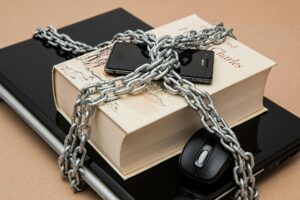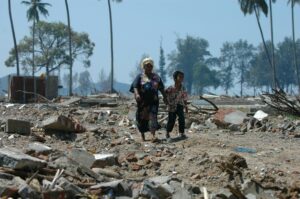1. Offline Maps and Navigation Tools
Apps like OpenStreetMap and Organic Maps offer GPS-based mapping without the need for an internet connection. These tools are invaluable in situations where access to centralized navigation platforms (e.g., Google Maps) is blocked, monitored, or unavailable due to infrastructure failures.
2. Secure, Decentralized Communication Platforms
Tools like Briar or Jami allow encrypted peer-to-peer messaging over WiFi or Bluetooth. This helps users stay connected even in surveillance-heavy or blackout environments, with no central servers required.
3. Local Currency / Barter Network Participation
Resilient communities often rely on local scrip, barter exchanges, or community-supported cooperatives. These alternatives provide economic flexibility when national or regional financial systems falter. Start by exploring local food co-ops or timebank networks in your area.
4. Print-Ready First Aid and Basic Medical Guides
Download and print free first aid manuals from the Red Cross or WHO. A hard-copy guide can be a literal lifesaver when digital access is cut off or power is down. Focus on basic wound care, CPR, and sanitation in crisis scenarios.
5. Alternative Energy and Off-Grid Power
Solar generators, hand-crank devices, and small-scale wind/thermal systems offer energy resilience during grid failure. Devices like Goal Zero or open-source DIY solar kits allow families to power radios, lights, and medical equipment independently.
6. Water Purification and Storage
Safe drinking water is foundational. Stockpile filters (e.g., Katadyn, Sawyer Mini), iodine tablets, or gravity-fed filtration systems. Understand basic water collection and boiling techniques for urban and rural conditions.
7. Low-Tech Information Storage
Print and store key survival references: seed-saving guides, community cookbooks, low-tech repair manuals. Consider prepping USB drives or microSD cards with encrypted offline libraries (like Internet in a Box[17]) for use on secure, air-gapped devices.
8. Community Education and Skill-Sharing
Encourage local classes or networks to teach basic repair, gardening, first aid, digital privacy, and legal rights. Knowledge transfer builds local resilience. Resources like Permaculture Principles[18] or Resilience.org[19] provide models for skill-based communities.
This content is free to use, adapt, and share.
Knowledge and information should be open—please spread them far and wide.A few things to keep in mind:
- All of my work comes with absolutely no warranty, expressed or implied. However…
- It will almost certainly work until it breaks,
though I must admit it may never work or be useful—and that would be sad.- If/when it breaks, you can keep all the pieces.
- As for what you don’t like, it’s yours to do with as you will.
- If you find my materials helpful, both you and I will be happy (at least for a while).
- My advice is worth every penny you paid for it!
Full disclosure:
I use various AI systems to assist in developing my content.
If you’re curious about how I use them, feel free to check out:
The Revolutionary Impact of AI on Genealogy and Historical Research.


